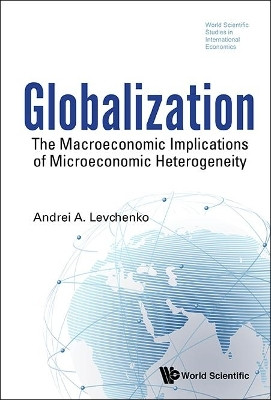Globalization: The Macroeconomic Implications Of Microeconomic Heterogeneity(English, Hardcover, unknown)
Quick Overview
Product Price Comparison
We live in an era of globalization: ever increasing international integration of goods, capital, and labor markets. The benefits and costs of increased trade and financial integration in the world today continue to be hotly debated. The reason globalization is controversial is that the impact of globalization is often nuanced, and theory reveals many possibilities. The impact of globalization on macroeconomic outcomes thus remains an empirical and quantitative question.Levchenko collects, in one volume, the results of a multi-year research program to build heterogeneous firm and sector models for the quantitative evaluation of globalization. The volume explores the impact of globalization on both welfare and macroeconomic fluctuations using these micro-founded quantitative models.Recent advances in international trade have built tractable theoretical models that can be implemented numerically and used to evaluate quantitatively the impact of a variety of phenomena. These models are global in scale - encompassing as many as 80 countries as well as multiple sectors - and at the same time feature rich micro-foundations of firm and technological heterogeneity. This combination means it is now possible to dramatically expand the set of questions that can be answered, in particular regarding the consequences of real-world heterogeneity present in the global economy, both at the firm and sector level.The book uses these frameworks to address the central questions about globalization around the world: the impacts of reductions in trade costs, long-run changes in comparative advantage, and migration of labor, among others. The book aims to provide a unifying perspective that merges traditional theory, econometric evaluation, and quantitative modeling. The running theme of this research program is that in order to understand the macroeconomic impact of globalization, it is essential to measure, and model, the microeconomic heterogeneity in the economy.


